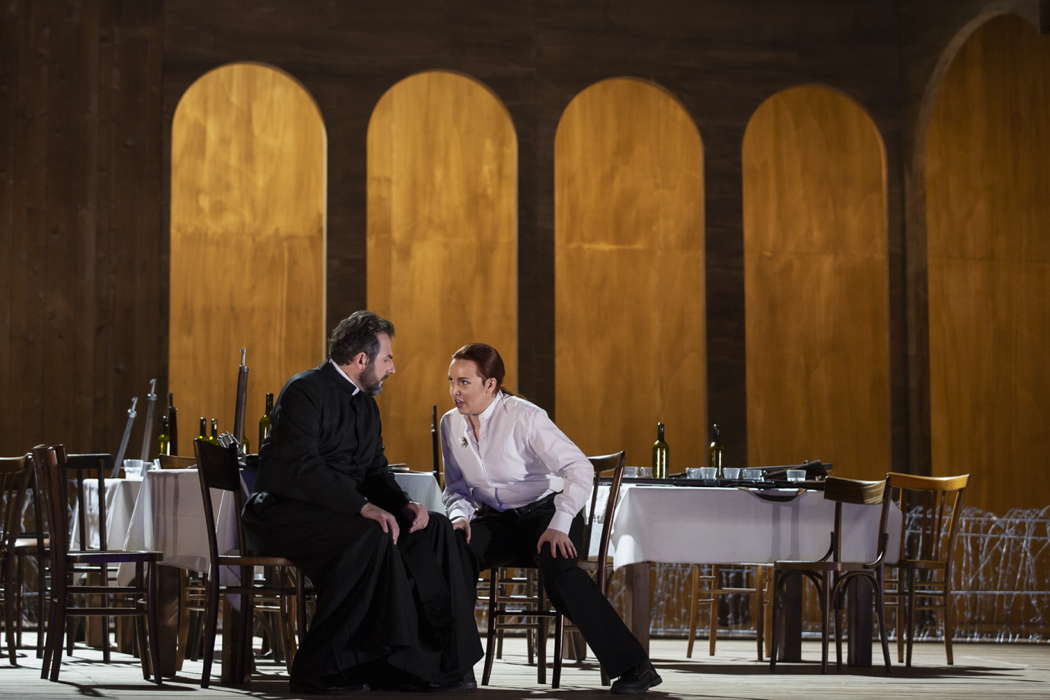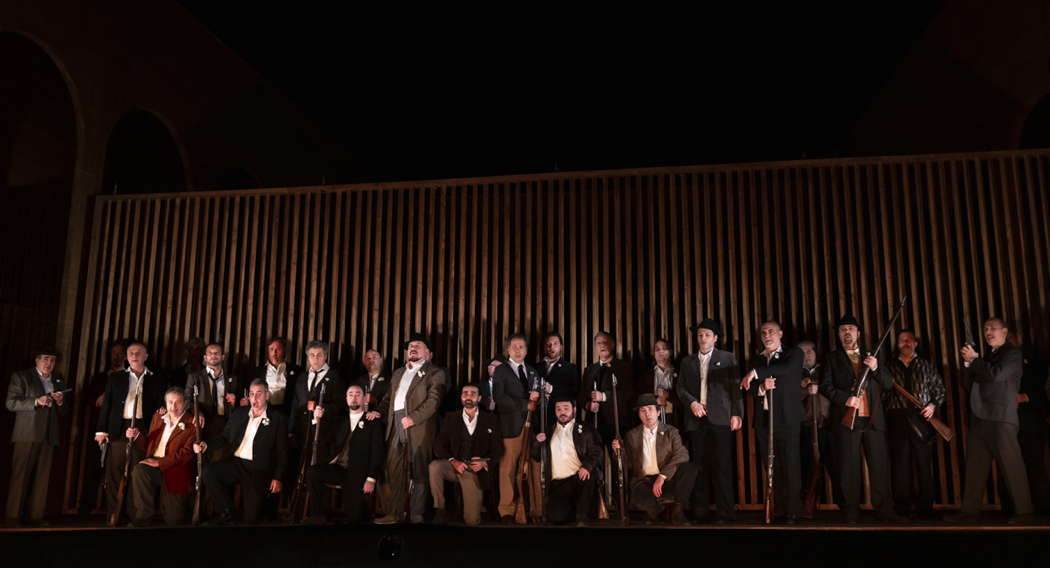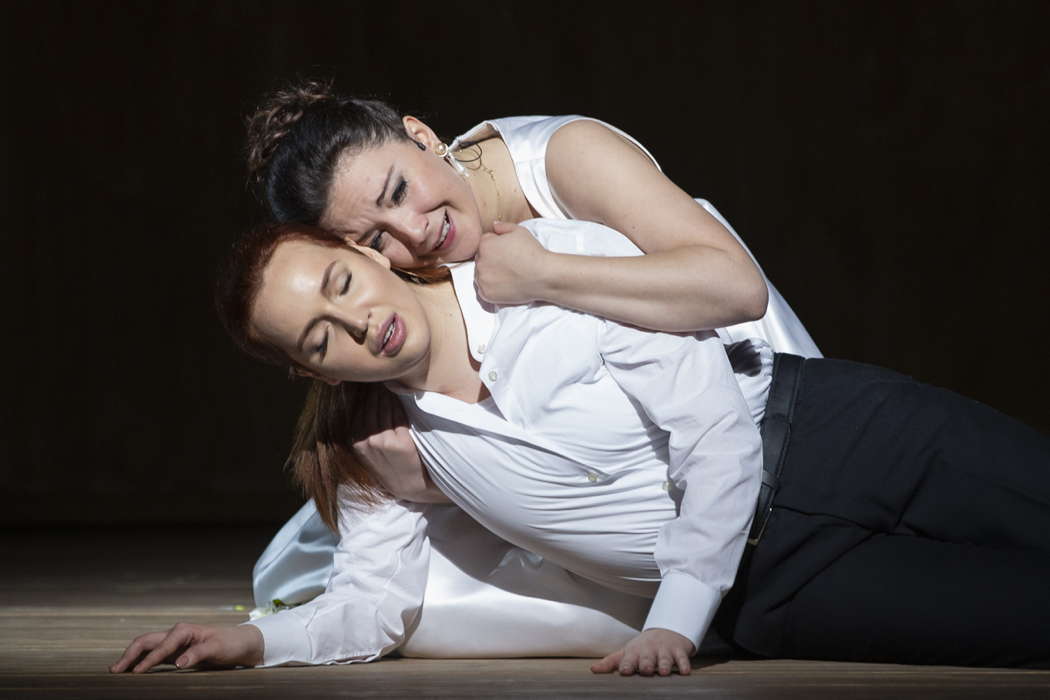- William Walton
- Ward Swingle
- Leif Solberg
- Ervín Šulhov
- caprino
- Cavaradossi
- Ravel: Bolero
- Drake University
 CENTRAL ENGLAND: Mike Wheeler's concert reviews from Nottingham and Derbyshire feature high profile artists on the UK circuit - often quite early on their tours.
CENTRAL ENGLAND: Mike Wheeler's concert reviews from Nottingham and Derbyshire feature high profile artists on the UK circuit - often quite early on their tours.
 DISCUSSION: What is a work? John Dante Prevedini leads a discussion about The performing artist as co-creator, including contributions from Halida Dinova, Yekaterina Lebedeva, Béla Hartmann, David Arditti and Stephen Francis Vasta.
DISCUSSION: What is a work? John Dante Prevedini leads a discussion about The performing artist as co-creator, including contributions from Halida Dinova, Yekaterina Lebedeva, Béla Hartmann, David Arditti and Stephen Francis Vasta.
Bel Canto Marvels
GIUSEPPE PENNISI experiences
Bellini's rare opera 'I Capuleti e i Montecchi'
There was a great evening on 23 January 2020 at Teatro dell'Opera di Roma. One hundred and ninety diplomats accredited to the Italian Republic and to the Holy See were in the orchestra seats and boxes. I was in a side orchestra seat. The diplomats were guests of the President of the opera house and Mayor of Rome, Virginia Raggi, with whom they had had, in the afternoon, a meeting in the hall of the Orazi and Curiazi in the Capitol. The performance received more than ten minutes of applause at the curtain calls and showed that Teatro dell'Opera is the true 'flagship' of a capital where – as is well known – so many public services (from urban waste disposal to transport) do not function as they should.
The first performance of a new production of I Capuleti e i Montecchi by Vincenzo Bellini was on stage; a title as precious as it is rare. In Rome, this is only the fourth time that it has been staged: the first, in 1967, featured Claudio Abbado in the pit and Luciano Pavarotti, Giacomo Aragall and Margherita Rinaldi on stage (directed by Mario Missiroli); the third was an 'import' from Massimo Bellini of Catania. In fact, I Capuleti e i Montecchi is one of the relatively less represented works of Bellini's sparse catalogue, truncated – as it is known – by the composer's death at the age of thirty-four. The opera has little luck mainly on the Italian scene - it is in current repertoire in Zurich, London and New York - for two reasons: the vocal difficulties (to which I would add the orchestral ones) and a dramaturgy that has little or nothing to do with the popular imagery of Shakespearean tragedy. This is not the place to enter into the philological question of whether and to what extent Bellini and librettist Felice Romani had had access to The Bard's text. The libretto, however of a great level, is based on tales of Verona lovers before not only Shakespeare but also Bandello (the source of the Bard). The source is probably the novelist Da Porto (from which Bandello was inspired). It is unclear whether and in which translation Romani had access to Shakespeare's text. In fact, an action tragedy like Romeo and Juliet does not suit bel canto since the conventions of this style are based on melody and vocal agility to enhance the atmosphere.
The tragedy is sublimated by the intertwining of two female voices, a mezzo and a soprano – in the original setting Bellini would have liked two sopranos - contrasted by a coloratura tenor, Tebaldo, a baritone of agility, Lorenzo - doctor not friar, as in Shakespeare - and a bass, Capellio. There is, however, also the orchestra, whose role is underestimated in Bellini's works prior to his extreme masterpiece, I Puritani.

Nicola Ulivieri as Lorenzo (left) and Vasilisa Berzhanskaya as Romeo in Bellini's I Capuleti e i Montecchi at Teatro dell'Opera di Roma. Photo © 2020 Yasuko Kageyama
It was Teatro dell'Opera's musical director, Daniele Gatti, who proposed the staging of this rare Bellini title. He said that, after so many years of Verdi, Wagner, Beethoven and Mahler, he wanted to return to the marvels of bel canto, from which he had started his career. In fact, thanks to the Teatro dell'Opera Orchestra's ability, Gatti wanted to highlight the importance of Bellini as an orchestrator. You can hear this from the initial symphony which has a Rossinian scheme, but which, thanks to Gatti and the orchestra, recalls overtures by Beethoven, for example Egmont or Coriolan, for its ethical and heroic breath. Also memorable is the second act interlude, full of romantic premonitions. Gatti's splendid conducting shows little-known sides of Bellini, also in the accompaniment to the recitatives and the various musical numbers.

The gentlemen of the chorus in Bellini's I Capuleti e i Montecchi at Teatro dell'Opera di Roma. Photo © 2020 Yasuko Kageyama
Denis Krief, author of the stage directing, sets, costumes and lighting, uses a single set for the opera's two acts and six scenes. Aware that the work was conceived for more intimate theatres than Rome's Teatro dell'Opera, Krief designed the wooden set to become a real harmonic box that allows the singers to show off the bel canto marvels without forcing their voices. The setting is contemporary and the stage action emphasizes the universality of the values represented in the opera. There are many important moments: for example, the stage direction of the scene and duet between Romeo and Tebaldo in the second act where the modernity of the opera appears very clear.
The weight of the performance, however, is heavily on the shoulders of those who give body and voice to the two lovers, as is bel canto. A young team and, in part, still little known. Romeo is the mezzo Vasilisa Berzhanskaya, who comes from the programs for young artists of the Bolshoi and the Salzburg Festival; despite her young age, she is already in full and great vocal maturity as well as an excellent actress. Giulietta is Mariangela Sicilia, who pairs well with her in the soaring to daring peaks - those of Bellini's writing.

Vasilisa Berzhanskaya as Romeo and Mariangela Sicilia as Giulietta in Bellini's I Capuleti e i Montecchi at Teatro dell'Opera di Roma. Photo © 2020 Yasuko Kageyama
Dark and dominating, Capellio is sung by Alessio Cacciamani. Lorenzo, as acted and sung by Nicola Ulivieri, is effective. A real discovery for Rome, and for this reviewer, is the Tebaldo of Iván Ayón Rivas, a young Peruvian tenor with an imposing acute, a clear timbre and remarkable agility.
Copyright © 25 January 2020
Giuseppe Pennisi,
Rome, Italy

FURTHER INFORMATION: VINCENZO BELLINI


